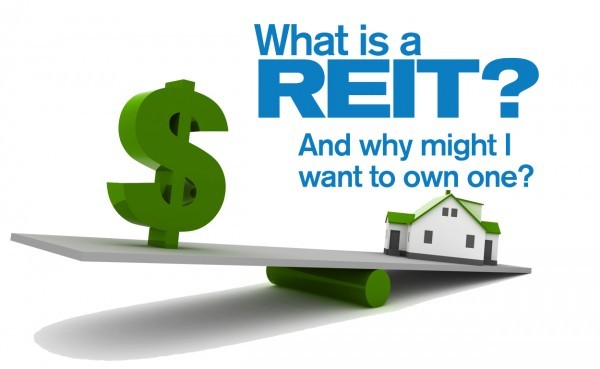What is a REIT (Real Estate Investment Trust)
Post on: 4 Апрель, 2015 No Comment

A REIT is a mutual fund that invests in real estate.
A real estate investment trust (REIT, pronounced reet) is a security that invests in real estate directly and sells much like a stock on exchanges. It invests through properties or mortgages and receives special tax considerations. As incentive to investors, REITs offer high yields and a liquid method of investing in real estate.
Boiled down, REITs are corporations that own and manage portfolios of real estate properties and mortgages, and anyone can buy shares in a publicly traded REIT. REITs are essentially mutual funds that invest in real estate.
For most Americans, investing in real estate is not financially feasible. Commercial real estate, in particular, is very expensive and requires a large investment. But a REIT pools resources of several small investors and allows them to invest in large-scale commercial real estate as a group. A REIT provides advantages in the form of liquidity and diversity unlike true real estate, shares can be easily sold. With a portfolio of properties rather than a single piece of property, shareholders face much less financial risk.
REITs were first developed in 1960 to democratize the real estate market, and they followed the model of investing in other industries the purchase of equity. At least 90 percent of a REITs taxable income must be distributed annually to shareholders, in the form of dividends. REITs are permitted to deduct dividends paid to shareholders from their corporate taxable incomes to maintain pass-through entity status, so most REITs owe no corporate tax. As a result, it passes the responsibility of paying these taxes onto its shareholders. [Related: Retirement Strategies for Every Age ]
To qualify as a REIT (as overseen by the IRS), a company must have at least 75 percent of its assets tied to real estate investments. A corporation must also be structured as a business trust, and be managed by a board of directors or trustees. Shares must be fully transferrable, and each REIT must have at least 100 shareholders.
REIT qualification is also dependent on the makeup of the company. No more than 50 percent of its shares can be held by five or fewer individuals during the last half of each taxable year. At least 95 percent of a REITs gross income must come from financial investments, and, and at least 75 percent of gross income must come from rents or mortgage interest.
Types of REITs
The three REIT types are equity REITs (EREITs), mortgage REITs (MREITs), and hybrid REITs. EREITs purchase, own and manage real estate properties that produce income. This can include apartments, malls and office buildings. These are a good choice for long-term investing because dividends are earned from rental income and capital gains from property sales. EREITs make up 90 percent of the REITs in the United States.
MREITs dont invest in properties. Rather, they loan money for mortgages to real estate owners or purchase mortgage-backed securities. The revenue for MREITs is created by the interest earned on mortgage loans. If interest rates are low or expected to drop, MREITs are considered solid investments. MREITs are more volatile in a market with changing interest rates, as their dividends come from interest payments. As a result, MREITs make up only 10 percent of the REITs in the United States.
Hybrid REITs are a combination of equity and mortgage REITs, and earn money through a combination of rents and interest. They combine the investment strategies of both, and provide a more diversified portfolio.
As of 2012, there were 166 REITs registered with the SEC. Most of them trade on the New York Stock Exchange. The combined equity market capitalization of these REITs is a whopping $579 billion. There are a number of REITs that are not publicly traded, and some that are not registered with the SEC. According to the IRS, there are roughly 1,100 American REITs that have filed tax returns.














